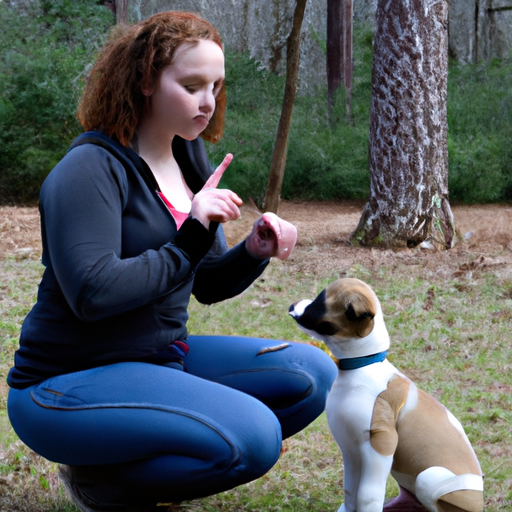As a caregiver to your furry friend, you’re bound to encounter challenges. One such challenge is dealing with incessant barking. While barking is a normal aspect of a dog’s communication, excessive barking can be disruptive. It’s important to understand that training a puppy to stop barking is not about silencing them completely, but about teaching them when it’s appropriate to bark and when it’s not.
Understanding Why Puppies Bark
Your puppy’s barking might be cute and funny at first, but it can quickly become a bothersome issue. The first step in addressing this issue is understanding why your puppy might be barking excessively.
- Attention Seeking: Puppies often bark to get your attention or to demand something they want.
- Boredom: Lack of physical and mental stimulation can lead to excessive barking.
- Fear or Anxiety: Puppies may bark excessively when they’re scared or anxious.
- Pain or Illness: If your puppy is unwell or in pain, they may bark more than usual.
Identifying the Root Cause
Identifying the root cause of your puppy’s barking is crucial to addressing it effectively. Pay close attention to the circumstances when your puppy barks excessively. Does it happen when you leave them alone? When they see other dogs or people? This observation can help you understand the trigger.
Training Techniques to Stop Barking
Training a puppy requires patience, consistency, and positive reinforcement. Here are some techniques to help your puppy stop barking:
-
Ignore the Barking: If your puppy is barking for attention, do your best to ignore them. Don’t look at them, don’t talk to them, don’t touch them until they stop barking. Once they’re quiet, reward them with a treat or praise.
-
Use a Distraction: Distract your puppy when they start barking. Get their attention with a toy or a command that they know.
-
Teach the ‘Quiet’ Command: Teach your puppy a command that signals them to stop barking. Start by saying ‘quiet’ when they stop barking on their own and give them a treat. Eventually, they will associate the command with the action.
The Importance of Mental and Physical Stimulation
Boredom can lead to excessive barking. Ensure your puppy gets plenty of physical exercise and mental stimulation. This could be through walks, playtime, or training sessions. Mental stimulation can be provided through puzzle toys or learning new commands.
| Type of Stimulation | Examples |
|---|---|
| Physical | Walking, Playing fetch |
| Mental | Puzzle toys, Training |
Dealing with Separation Anxiety
If your puppy’s excessive barking is caused by separation anxiety, it’s important to address this issue. Gradually get your puppy used to being alone. Start by leaving them alone for a few minutes at a time and gradually increase the duration. Provide them with a safe and comfortable space where they can relax.
When to Seek Professional Help
If you’re struggling to manage your puppy’s barking and it’s causing distress to you or your puppy, it might be time to seek professional help. A professional dog trainer or a veterinary behaviorist can provide valuable guidance and assistance.
Frequently Asked Questions (FAQs)
Q: How long does it take to train a puppy to stop barking?
A: It varies from puppy to puppy. Consistency and patience are key. It could take a few weeks or even a few months.
Q: Is it bad to use a bark collar on my puppy?
A: Bark collars can be controversial. They might stop the barking, but they don’t address the root cause of the barking. It’s generally better to use positive reinforcement methods.
Q: My puppy barks at strangers, what should I do?
A: It’s normal for puppies to be wary of strangers. Gradually expose your puppy to new people in a positive and controlled environment. Reward them for calm behavior.
Remember, your puppy looks to you for guidance. With patience, consistency, and understanding, you can help your puppy learn to bark less and communicate more effectively.



